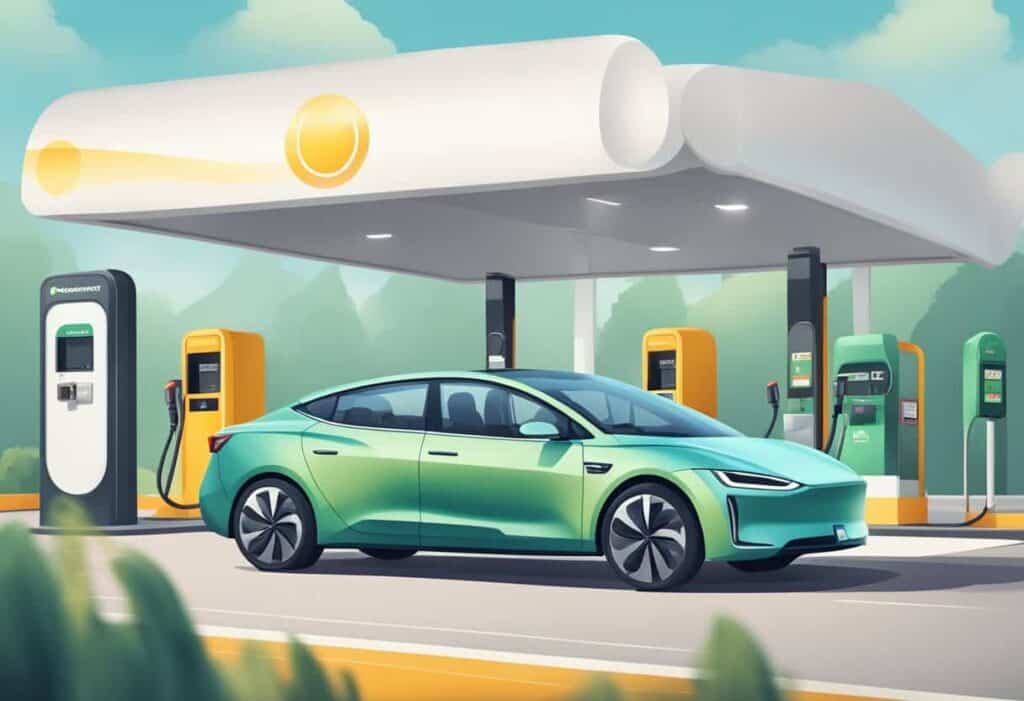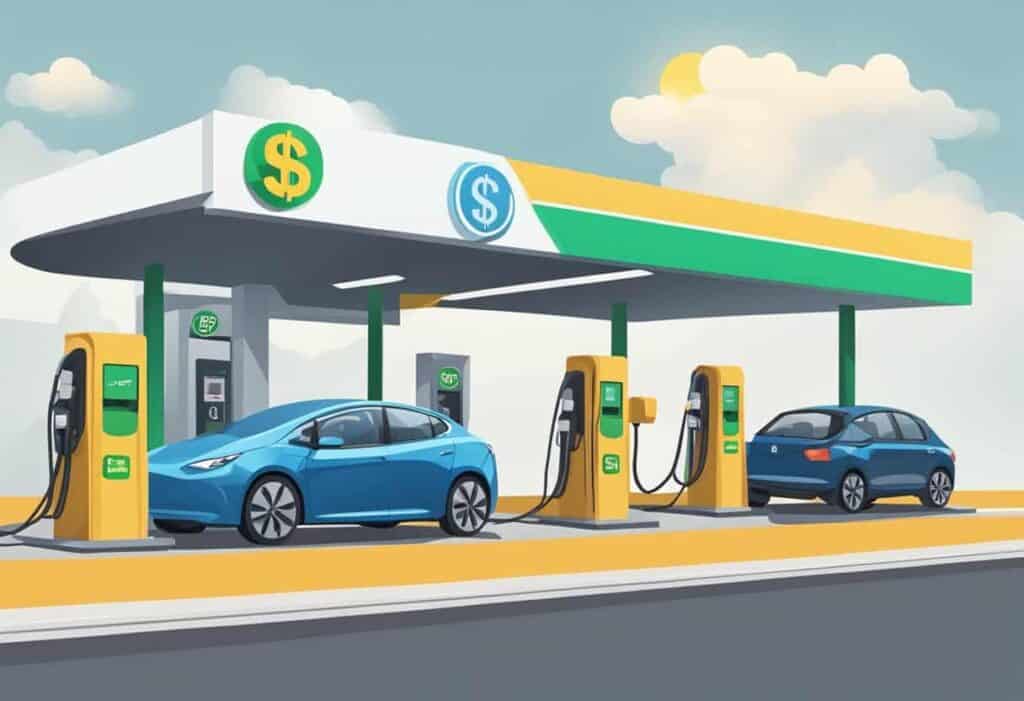Electric cars are shaping the future of transportation by offering numerous benefits to both drivers and the environment. One of the most compelling reasons to switch to an electric vehicle is the significant reduction in fuel costs. Unlike gasoline-powered cars, electric vehicles run on electricity, which is often cheaper and can be sourced from renewable energy. Charging an electric car at home can save drivers a considerable amount of money over time.
Electric cars are also kinder to the environment. With zero tailpipe emissions, they contribute less pollution to the atmosphere, making them a great choice for anyone concerned about air quality and climate change. This can be a huge advantage, especially in urban areas where air pollution is a big problem.
Another advantage of electric vehicles is their simplicity and reliability. Electric motors have fewer moving parts than internal combustion engines, resulting in less maintenance and fewer opportunities for things to go wrong. This means electric car owners can look forward to fewer trips to the mechanic and lower long-term maintenance costs.
Benefits of Using an Electric Car
Now, let me tell you the benefits of using an electric car.
1. Environmental Impact
Electric cars offer significant environmental benefits by reducing carbon emissions, promoting sustainability, and improving air quality.

Reduced Emissions
Electric vehicles (EVs) produce fewer greenhouse gas emissions than traditional gasoline-powered cars. They generate zero tailpipe emissions, which helps decrease overall carbon emissions. This reduction is crucial in fighting climate change, as fewer harmful gases like carbon dioxide are released into the atmosphere.
Another key aspect is their efficiency. While gasoline vehicles convert only about 20% of the energy from fuel into actual movement, EVs convert more than 60% of the electrical energy from the grid to power the vehicle’s wheels.
When charged using renewable energy sources such as solar or wind power, emissions are reduced even further. This makes EVs a more environmentally friendly option than their gasoline counterparts.
Sustainability
The production and use of electric cars support a shift towards more sustainable forms of energy. Many EV manufacturers invest in renewable energy for manufacturing processes and vehicle operation. Using renewable sources like solar panels and hydropower can minimize the overall environmental footprint of EVs.
Battery production has some environmental impact, but technological advances are making batteries more efficient and longer-lasting. Recycling programs for used batteries are also improving, lessening the environmental burden and promoting a more sustainable lifecycle for EV batteries.
Air Quality Improvement
Electric cars contribute significantly to improving air quality. Traditional vehicles emit pollutants such as nitrogen oxides and particulate matter, which are major contributors to air pollution. These pollutants can cause respiratory issues and other health problems.
EVs eliminate these harmful emissions at the source, leading to cleaner air, especially in urban areas. Reducing air pollution benefits the environment and public health by decreasing the incidence of asthma and other respiratory diseases.
By decreasing the number of gasoline-powered vehicles on the road, communities can experience less smog and better overall air quality, making EVs an important step towards eco-friendliness.
You should also know the disadvantages of an electric car.
2. Economic Advantages
Electric cars offer several financial benefits that can positively impact your wallet. Key areas include fuel savings, lower maintenance costs, and potential tax incentives.
Fuel Cost Savings
One of the primary economic benefits is the significant reduction in fuel costs. Electric cars run on electricity, generally cheaper than gasoline or diesel. For instance, charging an electric vehicle (EV) at home can often cost less per mile than using petrol or diesel. This is particularly notable for those with longer commutes or who travel frequently.
In addition, EV owners often benefit from predictable and stable electricity prices, contrasting with fluctuating fossil fuel prices. Using renewable energy sources for charging can lower these costs further, providing additional savings and reducing dependency on fossil fuels.
Lower Maintenance Costs
Electric vehicles typically require less maintenance compared to their gas-powered counterparts. This is largely due to the simplicity of the electric motor, which has fewer moving parts compared to internal combustion engines. Maintenance costs can be significantly lower without the need for oil changes, exhaust system repairs, or spark plug replacements.
Regenerative braking systems also reduce brake wear, helping maintain the brakes and extend their life. These factors collectively lower overall maintenance expenses, saving both time and money.
Tax Incentives
Governments often provide tax incentives to encourage the adoption of electric vehicles. These incentives can come in the form of federal tax credits, state rebates, or local incentives. For example, in the United States, there is a federal tax credit of up to $7,500 for qualifying electric vehicles.
Some states offer additional rebates or credits, which can further reduce the initial EV cost. Additionally, some regions provide benefits like reduced registration fees, free parking, or access to carpool lanes, adding to the financial appeal of electric cars.
3. Performance and Convenience
Electric cars offer a quiet, smooth driving experience and the convenience of easy charging options. They feature advanced technology that enhances both performance and efficiency.

Enhanced Driving Experience
Electric cars provide a quiet, smooth driving experience thanks to their electric motors. These motors deliver instant torque, giving drivers quick acceleration without delays.
Additionally, electric vehicles often have regenerative braking systems. This allows the car to recover energy during braking, improving overall efficiency.
The lack of a traditional engine also means fewer vibrations and a smoother ride. Electric cars need less maintenance than gas-powered vehicles because they have fewer moving parts.
Convenience of Charging
Electric car charging can be done at home or at public charging stations. Many people find it convenient to charge overnight at home using a standard electrical outlet or a dedicated charger.
Public charging infrastructure has improved, making finding a charging station easier when driving. Some charging stations offer fast charging, allowing drivers to get back on the road quickly.
Charging at home is generally more efficient and cost-effective than refueling a gas vehicle.
Advanced Technology
Electric cars come equipped with advanced technology that enhances both performance and convenience. Modern battery-electric vehicles often include high-tech features such as advanced driver-assistance systems (ADAS), which can help with parking, navigation, and safety.
These cars may also feature connected apps that allow drivers to monitor charging status and find charging stations. Integrating software updates ensures the vehicle stays up-to-date with the latest features and improvements.
The combination of advanced technology and efficient electric motors makes electric vehicles a smart choice for modern drivers.
Read Top 10 Electric Car Companies
4. Energy Efficiency
Electric cars are known for their energy efficiency. Compared to traditional fuel vehicles, they convert a higher percentage of the energy they receive from the grid into usable power, and they also use innovative methods to optimize energy use.
Fuel Efficiency
Electric cars are much more fuel-efficient than gasoline-powered vehicles. Traditional cars only convert about 20-30% of the energy stored in gasoline into moving the car. In contrast, electric cars convert over 60% of the electrical energy from the grid to power at the wheels. This makes electric cars more energy efficient.
Additionally, electric cars tend to have fewer moving parts, which reduces the energy lost to friction and heat. As a result, they use less energy to travel the same distance as fuel-efficient vehicles. This fuel efficiency can lead to significant savings on energy costs and reduce the environmental impact.
Regenerative Energy
One of the standout features of electric cars is their use of regenerative braking. Regenerative braking is a system that captures the energy typically lost during braking and converts it back into electricity, which is then stored in the battery for later use.
When the driver brakes, the electric motor reverses, slowing the car and generating electricity. This process improves energy efficiency and reduces wear and tear on the brake pads, extending their lifespan.
Regenerative braking is a key component in making electric cars more energy efficient, and it helps make the most of every charge. The captured energy helps extend the driving range, making these vehicles even more practical and sustainable.
5. Health and Safety Benefits
Electric vehicles (EVs) provide significant health and safety benefits. They help reduce noise pollution and often come equipped with advanced safety enhancements.
Noise Pollution Reduction
Electric cars are much quieter than traditional gas-powered vehicles. This is because EVs use electric motors, producing far less noise than internal combustion engines. Reducing noise pollution can make urban environments more relaxing and less stressful for residents.
Quieter streets lead to less noise-induced stress and related health problems. Chronic noise pollution is linked to cardiovascular issues and sleep disturbances. With more electric cars on the roads, these health problems could decrease. Reduced noise can also improve concentration and mental well-being for people living close to busy streets.
Safety Enhancements
Many electric cars have advanced safety features, such as automatic emergency braking, lane-keeping assist, and adaptive cruise control. These technologies help prevent accidents and keep drivers and pedestrians safer.
Due to their battery placement, EVs often have lower centers of gravity, which reduces the risk of rollover accidents. Additionally, electric cars undergo rigorous safety tests. They are designed to protect both occupants and batteries in the event of a collision. The structural benefits and advanced safety technologies make EVs a safer choice for many drivers.
Reduced noise pollution and enhanced safety features make electric vehicles a great option for improving overall health and safety. For more information on the benefits of EVs, you can visit this page.

6. Operational Advantages
Electric cars offer several operational benefits, including requiring less maintenance and providing faster acceleration due to their design and technology.
Convenient Maintenance
Electric vehicles (EVs) come with fewer moving parts than traditional gasoline or diesel cars. This means they often need less maintenance. Typical expenses for things like oil changes and transmission repairs are non-existent in EVs. As a result, lower maintenance costs are one of the key financial benefits for EV owners.
Another plus is that EV brake systems typically last longer. Regenerative braking systems capture and reuse energy instead of wasting it as heat, reducing wear on brake pads. Less maintenance not only saves money but also minimizes the hassle of frequent visits to the mechanic.
Fast Acceleration
Electric cars are known for their fast acceleration capabilities. EVs deliver power directly to the wheels through an electric motor, resulting in instant torque. This means an electric car can go from 0 to 60 mph much faster than most traditional internal combustion engine vehicles.
This rapid acceleration enhances the driving experience. It allows for quicker merging into traffic and a more responsive performance overall. Various models, including high-end ones like the Tesla Model S, are celebrated for their impressive acceleration times. This aspect of EVs makes them appealing not just for their environmental benefits but also for their superior driving dynamics.
7. Infrastructure and Support
Effective infrastructure and strong support systems are crucial for adopting electric vehicles (EVs) widely. This section details public charging availability to help understand the need and current status.
Public Charging Availability
The availability of public charging stations is essential for the growth of electric vehicle usage. Drivers need access to charging points while they are away from home or on long trips. Many governments and businesses are investing in this infrastructure to encourage EV adoption.
For instance, the Bipartisan Infrastructure Law supports EVs by funding public charging stations. Public charging locations can be found at various places such as shopping centers, parking lots, and along highways.
Having a reliable network of public chargers can alleviate range anxiety, a common concern among potential EV users. This means drivers feel more comfortable knowing they can charge their vehicles conveniently.
Investing in public charging infrastructure supports individual users and benefits communities. It creates economic opportunities, improves air quality, and reduces greenhouse gas emissions. It is clear that expanding public charging availability is a pivotal step in promoting electric vehicle use.
Conclusion
Electric cars offer many benefits that are important for both individuals and society.
They contribute to a cleaner environment by producing fewer emissions. With no tailpipe emissions, they help to reduce air pollution in cities.
Electric vehicles (EVs) also provide long-term cost savings. Lower fuel costs and less maintenance are significant financial advantages.
Key points to consider:
- Eco-friendly: Zero tailpipe emissions contribute to cleaner air.
- Cost-effective: Lower fuel prices and reduced maintenance costs.
- Performance: Smooth and quiet driving experience.
Additionally, as technology improves, EVs become more practical, with longer battery life and faster charging times.
Regenerative braking is another benefit. It reduces wear and tear on braking systems and increases the car’s efficiency.
Electric cars are also innovative. They often come with advanced technology and connectivity features, making them a smart choice for tech enthusiasts.

Hi, I’m Marybeth, an electric car enthusiast living in New York in the USA. As the owner of electriccartalks.com, I love sharing my knowledge on EV tips, battery maintenance, and charging solutions. As a proud Tesla owner, I blend my personal experiences with professional insights to offer valuable information to fellow EV enthusiasts. Through my articles, I aim to empower others to make informed decisions about their electric vehicles. Read more